I don’t know about you, but I’ve always found it hard to nail down my favorites. I can’t pick just one movie, ice cream flavor or even color (green and orange, in case you were wondering). So, you can imagine when it comes to classic literature, narrowing it down to a list of 20 has been very difficult.
And yet, here it is. A list that encompasses a group of classics so highly referenced, even in today’s pop culture, that they are must reads. But don’t just read them so you can be in the know—read them because they are classics for a reason.
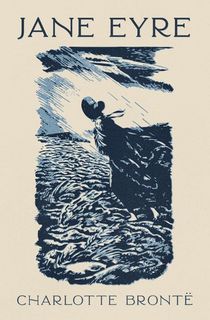
Jane Eyre
This novel kicks off the list because it is intriguing to this day. First, Brontë published it under a pseudonym. Then, she tackled real issues of the day not normally discussed in polite company including the revolutionary idea that a woman might have her own dreams and desires outside of her social duties.
Not to mention, Jane Eyre was rather groundbreaking for its time with the inner thoughts of a female narrator told from her own point of view. But don’t get intimidated—at its heart this is a romance in a brooding, gothic tale.
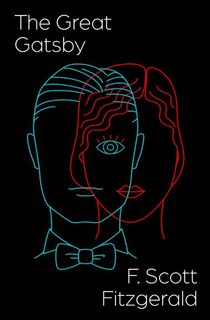
The Great Gatsby
The Roaring 20s. The last century’s, of course. Still, this book remains iconic, especially for its original cover art. You still see those brooding eyes plastered on reusable shopping bags and T-shirts. You've seen it everywhere—and you should read it, too.
Getting a behind-the-golden-curtains look at how the wealthy live is tempting. Even better, the device of using a narrator who becomes enmeshed in a world he has never known is relatable to the reader and a wise way to get invested in the romance of Daisy and Gatsby, tragic though it may be.
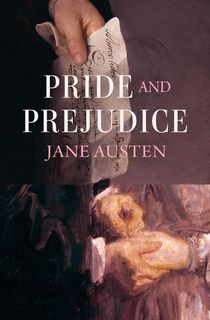
Pride and Prejudice
Even if you haven’t read this novel, you've surely heard of the aloof Mr. Darcy and quick-witted Elizabeth. These main characters are referred to often and have also been transformed into modern characters in Ayesha at Last and many other reimaginings of this classic tale, in print or on the screen.
This is the story that set up the modern day romantic storyline of girl meets boy, boy irritates girl, and of course, wait for it...girl and boy fall for each other.
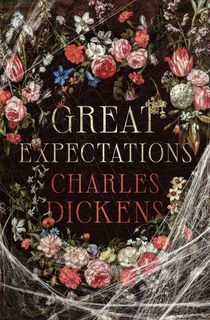
Great Expectations
Ok, I know I said it’s hard for me to pick favorites, but hear me out. To me, this is the most memorable Dickens novel because of Miss Havisham. Though the focus on the novel is the ascension of young Pip from poverty to a better life through the anonymous donation of money towards his education, Miss Havisham steals the story.
The vivid picture that Dickens paints of a jilted elderly woman still wearing her wedding gown and preserving her home in homage to a wedding that never took place is poignant, disturbing and hard to shake long after you’ve read the last page.
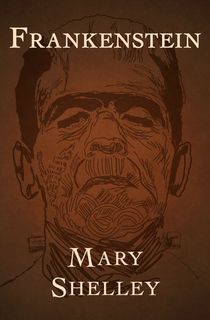
Frankenstein
Often considered the first work of science fiction, Frankenstein is all the more interesting for that fact that it was written by an 18 year old woman. Shelley wasn’t interested in the fairy tale stories that were supposed to appeal to little girls. No, she was interested in a mad scientist, Dr. Frankenstein, and the horrors that unfold when a man decides to play God. Add the device of a story told within a story, and you'll be captivated for hours.
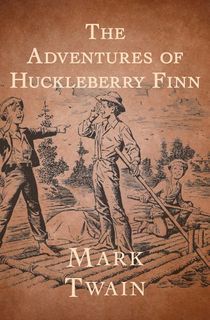
The Adventures of Huckleberry Finn
This one may be the most questioned inclusion on the list. It's often included on banned books lists because of its language—the eponymous Huck regularly uses a slur to describe Jim, a Black man who's trying to escape slavery and fleeing with him on the Mississippi river.
But to miss out on the compassion and wisdom that Jim bestows on Huck in spite of the boy’s ignorance would be robbing ourselves of that same lesson of compassion and wisdom in the direst of circumstances. And that is something that we all need.
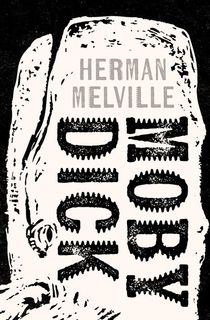
Moby Dick
People who say ”Hell hath no fury like a woman scorned” have never met Captain Ahab. The singular obsession of this captain to kill the whale that bested him and took his leg eventually leads to the demise of most of his ship’s crew and himself.
But he cannot help himself, and watching his descent into madness from the outside view of the narrator, Ishmael, is simultaneously frustrating and mesmerizing. And though this is often considered one of the most difficult books to read, if you ask me, it's worth it.
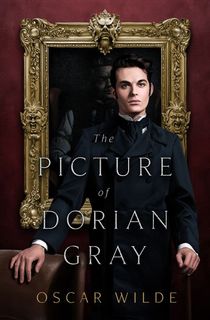
The Picture of Dorian Gray
You know that quote, “Be yourself. Everyone else is already taken”? If you liked that one, then get ready for some deeply psychological insights in this novel by the same author. A young, beautiful Dorian Gray models for a painting but is told he will one day resent the portrait as it will remain beautiful when he has grown old and haggard. He imagines that to be the worst fate and curses the portrait to bear the changes of time rather than his own body.
This leads to a life of hedonism and trespasses that corrupt the inside of Dorian, if not the outside. There’s always a price to pay with curses such as these and you won’t want to miss the ending that would have fit perfectly into an episode of The Twilight Zone.

Hamlet
While technically a play, this work is admittedly a classic. And why wouldn’t it be? Dysfunctional royal family. Yes, please. Ghosts haunting the living. Yes, please. Catchy rhymes with memorable lines written in iambic pentameter. Yes, please!
This play has been taught in schools, made into movies and acted out by the world’s most talented thespians because it has it all: avenging a wrong, love and betrayal, plotting to take out a sitting king, losing one’s mind (or pretending to), and lots and lots of murder.
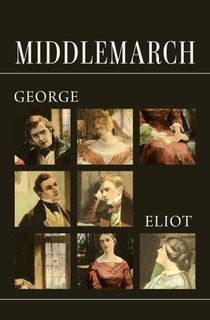
Middlemarch
Like Brontë, Mary Anne Evans wrote this novel under a male sounding pseudonym because she wanted her book to be taken seriously, and to write about topics that weren’t considered in a female writer’s domain. This book is a study in the roles of husband and wife, and the idea of purpose and calling for both men and women.
Bucking the idea of happily ever after, this is not a typical romance novel and not meant to brighten your day. Eliot dares you to think about the choices that we make and the reasons that we make them.

The Catcher in the Rye
The Catcher in the Rye is the coming-of-age story of a young man named Holden Caulfield. The book follows him over the course of two days, during which he is expelled from boarding school and wanders around New York City in a state of discontent and frustration. But the protagonist isn't necessarily why this book is worth the read.
What makes The Catcher in the Rye so transcendent is how J.D. Salinger captures the poignancy of Holden's voice while keeping the prose relatively simple. This makes it easy to get lost in Holden's thoughts and, while he may be an annoying character at times, easy to feel sympathetic for the loneliness and existential dread he and many others feel during their teenage years.

Nineteen Eighty-Four
This dystopian novel became an instant bestseller upon its publication in 1949, when memories of Nazi totalitarianism were still fresh. As time passed, the novel remained popular because of the fear that something like "Big Brother" could happen. And today, 74 years later, Nineteen Eighty-Four continues to ring true regarding the fear of the potential state of the future world.
While Nineteen Eighty-Four clearly wasn't an accurate prediction of the future—the year 1984 happened 39 years ago, and we have yet to have "Big Brother" watching us—it is an essential read because of its eternal relatability to the modern world. We live in a world where technology permeates every inch of our lives. We also live in a world of continuous political strife, war, and "fake news."
Plus, throwing around the term "Orwellian" to describe current events makes you look like a literary genius, especially when you've read the book to back it up!

Lolita
The famous opening line of Nabokov's Lolita—"Lolita, light of my life, fire of my loins"—is known even amongst those who have never read the novel. The story of a middle-aged man falling in love with a young child is disgusting. So why do people continue to read Lolita? The problem is that the prose in this book is simply exquisite. This dichotomy stirs strong emotions in readers because it's difficult to justify how much you enjoy Nabokov's writing while simultaneously deploring it.
Personally, although I knew about the inappropriate relationship between Humbert Humbert and Lolita before I read the book, I didn't realize just how horribly far it goes until I read it for myself. This is also a book that gets referenced a lot in pop culture. Reading Lolita is essential to understanding why it continues to be read and discussed despite its objectionable plotline.

To Kill a Mockingbird
To Kill a Mockingbird is considered by many to be the classic coming-of-age novel. The book takes place in the Depression-Era Deep South, following a smart and inquisitive young girl named Scout and her brother, Jem. Their father, a widower named Atticus, is a prominent lawyer who agrees to represent a wrongfully accused Black man, despite the violent threats he receives for doing so.
Many praise Atticus as a sensitive, exemplary father. The novel strikes a chord with readers as Scout loses her naive view of the world to realize the racism and prejudice taking place around her. The novel, however, isn't perfect. It contains the use of racial slurs, and Harper Lee's antiquated portrayal of Black characters is a valid reason to be put off by it.
However, I argue that To Kill a Mockingbird is worth a read while keeping in mind that parts of the book are unacceptable because it is one of the most popular classic books of all time. Its flaws also help to educate readers on the history of systemic racism.
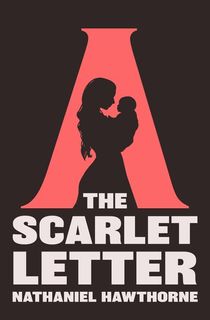
The Scarlet Letter
This is a classic novel that also continues to have a strong presence in modern culture. It's interesting to think that this book is a social critique of the misogyny of the Puritans hundreds of years ago, while women still relate to the feeling of having a "scarlet letter" due to their sexual activities.
This transcendence makes the book worth reading. Additionally, I will always champion that understanding the literary references of common modern phrases—like "wearing a scarlet letter"—is a great way to broaden your social knowledge. Nathaniel Hawthorne is also a brilliant author, and the book is a touching and vibrant read.

The Little Prince
Originally written in French, this novel is a timeless classic adored by adults and young readers alike. The Little Prince uses simple language, but it doesn't make the writing any less illustrative.
It touches upon childhood and growing up and teaches many important life lessons no matter your age. Everyone should read this beautiful novel for its heartwarming storyline that can be shared across generations.

Little Women
Little Women was written in 1868 but continues to be relevant today. A coming-of-age story of four sisters, Little Women reflects the acts of love, loss, heartache, and forgiveness many people with siblings face while growing up. This book is worth reading both for the beauty of the story, as well as for its message.
Louisa May Alcott used her own sister relationships as inspiration for this novel, giving the book a solid foot in reality which helps to make Little Women so evergreen. No matter the year, whether the 1800s or 2000s, sisters will always be sisters.

Lord of the Flies
When a plane crashes on a deserted island, the only survivors are a group of young boys. To survive, they establish a system to keep themselves civilized. Unregulated by any absolute authority, the boys eventually stray from their system, and chaos ensues as they turn on each other.
The Lord of the Flies is an essential read because it explores human nature at its very core. Without the law, what kind of society would we be? Additionally, the story's fast pace makes it very hard to put down, and the imagery is incredible.

Flowers for Algernon
Flowers for Algernon follows an intellectually disabled man named Charlie Gordon as he becomes the first human subject to undergo an intelligence-increasing surgery. But with his newfound IQ of 185, Charlie begins to remember horrific things that happened to him during his childhood. Additionally, the surgery fails as time passes, and Charlie regresses to his previous IQ of 65.
Flowers for Algernon will stick with you long after you've put it down. This book elicits a lot of emotions in a way that few other books are capable of doing, which is part of what makes it such a classic.

Beloved
Toni Morrison's "enduring masterpiece," Beloved, tells the story of a woman who escaped enslavement and is haunted by her dead infant, Beloved, whom she killed to spare from slavery. Beloved is also a physical manifestation of the generations of trauma caused by enslavement.
This book, though extremely dark and often banned for its explicit content, is an absolute must-read. Beloved asks a lot of readers in terms of emotional bandwidth, but the understanding of the inner workings of trauma you will gain—particularly the trauma caused by a life of enslavement—makes it worth it.









